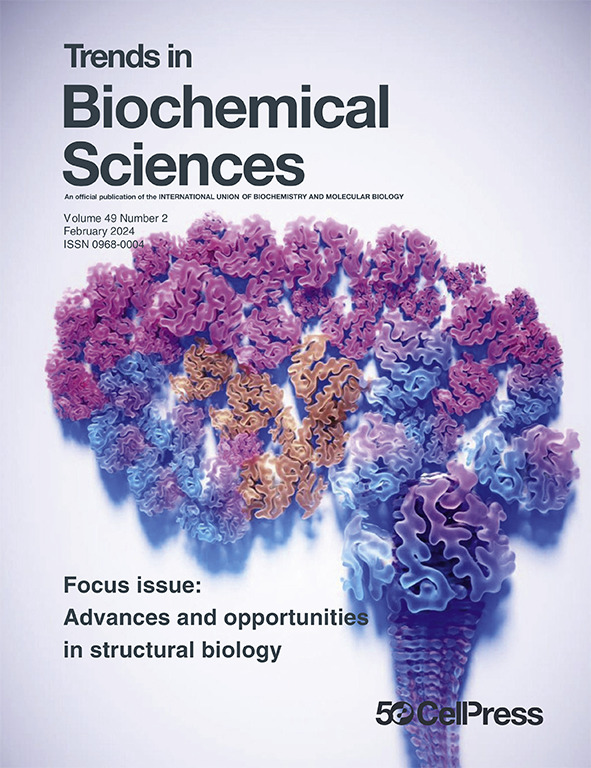加速向功能性糖蛋白组学迈进。
IF 11.6
1区 生物学
Q1 BIOCHEMISTRY & MOLECULAR BIOLOGY
引用次数: 0
摘要
糖蛋白组的异质性以及在复杂生物系统中量化其调控的挑战阻碍了功能糖蛋白组学的发展。与现有方法相比,Potel、Burtscher和Garrido-Rodriguez等人最近开发的深度定量糖谱分析(DQGlyco)方法显著提高了糖蛋白组学深度,有助于我们探究糖蛋白的功能含义。本文章由计算机程序翻译,如有差异,请以英文原文为准。
Accelerating the stride toward functional glycoproteomics.
The heterogeneity of the glycoproteome and the challenges associated with quantifying its regulation in complex biological systems have hindered functional glycoproteomics. The deep quantitative glycoprofiling (DQGlyco) method recently developed by Potel, Burtscher, and Garrido-Rodriguez et al. significantly improves the glycoproteomic depth compared with existing methods, aiding our ability to interrogate the functional implications of glycoproteins.
求助全文
通过发布文献求助,成功后即可免费获取论文全文。
去求助
来源期刊

Trends in Biochemical Sciences
生物-生化与分子生物学
CiteScore
22.90
自引率
0.70%
发文量
148
审稿时长
6-12 weeks
期刊介绍:
For over 40 years, Trends in Biochemical Sciences (TIBS) has been a leading publication keeping readers informed about recent advances in all areas of biochemistry and molecular biology. Through monthly, peer-reviewed issues, TIBS covers a wide range of topics, from traditional subjects like protein structure and function to emerging areas in signaling and metabolism. Articles are curated by the Editor and authored by top researchers in their fields, with a focus on moving beyond simple literature summaries to providing novel insights and perspectives. Each issue primarily features concise and timely Reviews and Opinions, supplemented by shorter articles including Spotlights, Forums, and Technology of the Month, as well as impactful pieces like Science & Society and Scientific Life articles.
 求助内容:
求助内容: 应助结果提醒方式:
应助结果提醒方式:


